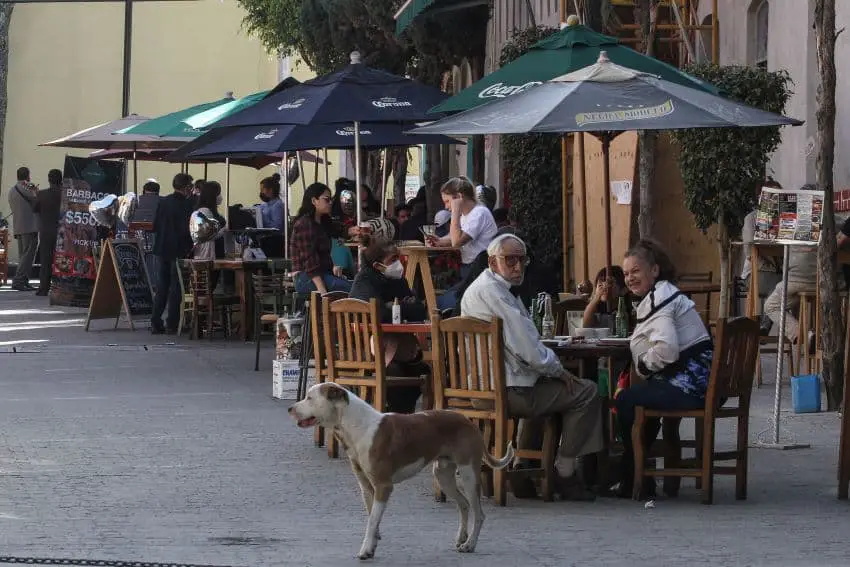I have a local (Mexican) friend with whom I simply cannot go to restaurants anymore.
Why?
Because I get all worked up about how she treats waiters.
I can’t help it. First, I don’t think she behaves nicely and appreciateively enough toward them. She might mutter a disinterested “gracias” when they bring her order, but she’s quick with an eye roll if she thinks they’ve made a mistake or taken too long.

She also thinks that tips are optional (I’ve noticed that the higher up the economic ladder one goes here, the more prevalent this belief is). I completely disagree, even when the service is sub-par. Working as a waiter is hard, even if you’re not great at it.
This probably has more to do with our different upbringings than much else. She grew up in a family that pretty much always had enough money for their needs and many of their wants. I grew up in a family whose income was much closer to those who depend on tips.
That said, my friend is not unique. My ears perked up terrier-style, for example, when I read Louisa Roger’s article on her experience leading customer service training. On common behavior: “I was pleasantly surprised when they said Americans and Canadians were pretty forgiving when their expectations weren’t met. In their experience, it was Mexicans and Italians who were more likely to get irritated.”
Well, color me not surprised. Or could it be that I just don’t know very many rich and entitled paisanos? Whatever it is, I’ve noticed it over the years: more Mexicans with plenty of money to spend than not seem to feel entitled to free service. If the service is phenomenal, they might leave 10%.

That doesn’t mean, of course, that we foreigners should overcompensate as a result. And it’s hard not to sometimes, I know.
We’re gushing with politeness and a broad willingness to help because we’re in love (with Mexico, possibly a Mexican, or both). Calm down.
Yes, it’s a fine line that we good-willed foreigners walk. On the one hand, there’s a sizable portion of Mexicans who believe that overexuberant generosity toward practical strangers makes you not a saint but an idiot. Things around here are corrupt enough, after all, that a certain cynicism can easily seep in.
This means that it can be easy for some to see us as Polyanna suckers who are practically begging to be taken advantage of. And I don’t know about you all, but that’s definitely not my own intention.

What should we do, then? I’ll admit that I’m guilty of sometimes overtipping. That said, I follow my partner’s lead on that, who’s spent much of his working life in restaurants. “I always try to leave at least enough for a taxi.” (In our city, mind you, 40-50 pesos is enough for a taxi; if you live in Los Cabos, I wouldn’t advise that as no one that earns a waiter’s salaries is taking taxis). Tips in restaurants, by the way, are nearly always split among the entire restaurant staff at the end of the night.
For further reading, check out Janet Blaser’s extensive article on how to tip in Mexico for a specific reference, too. I also have a history of fretting about our collective economic footprint. And of course, be sure to take notes on Bethany Platanella’s “Guilt payments and over-tipping” section of her “10 things gringos do that upset Mexicans” list!
Conclusion? Be cool. Be nice. But try to temper your savior complex. People aren’t as impressed as you think they are.
Sarah DeVries is a writer and translator based in Xalapa, Veracruz. She can be reached through her website, sarahedevries.substack.com.
